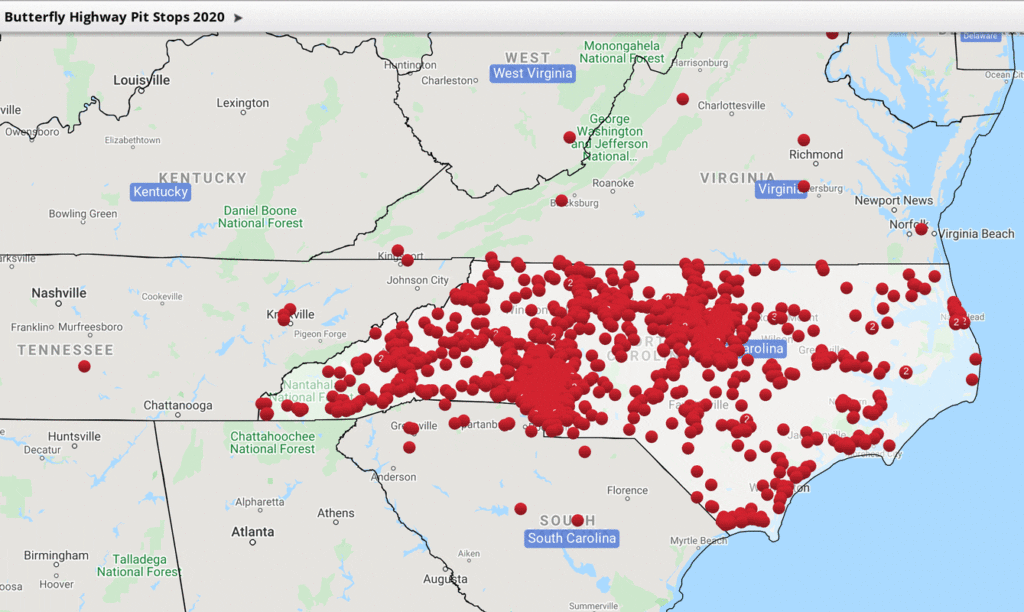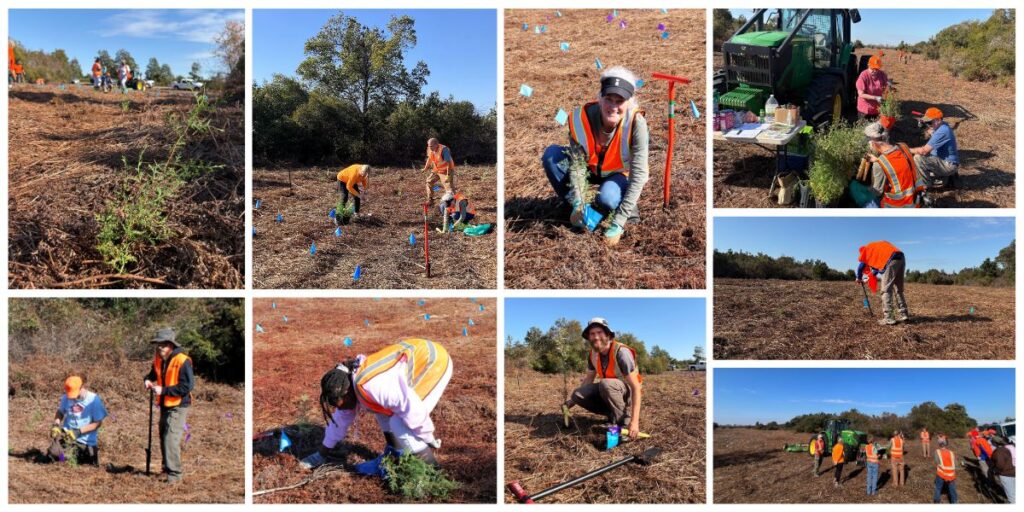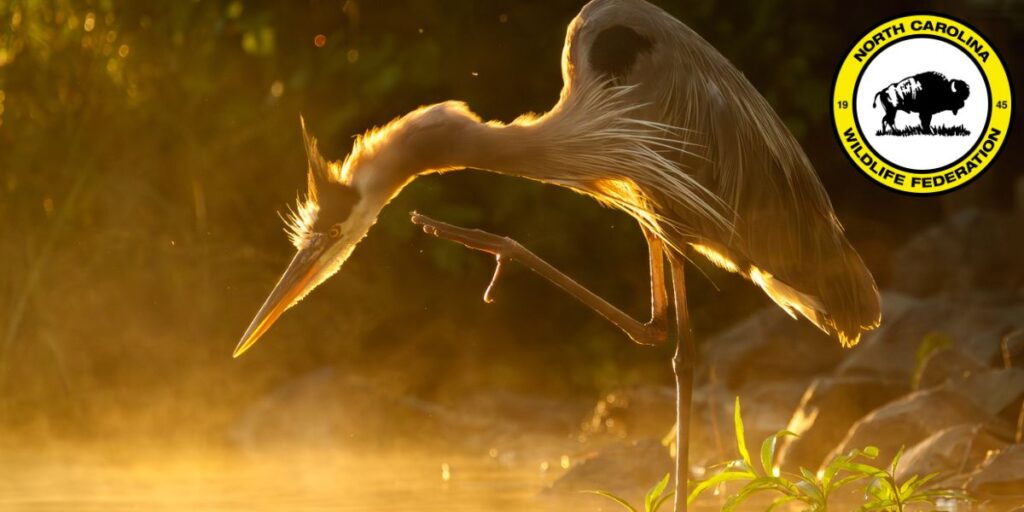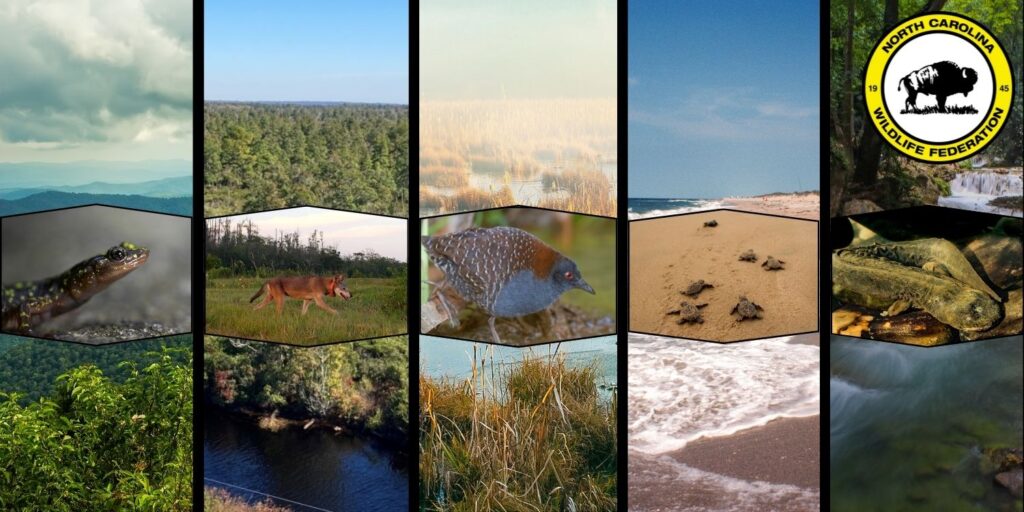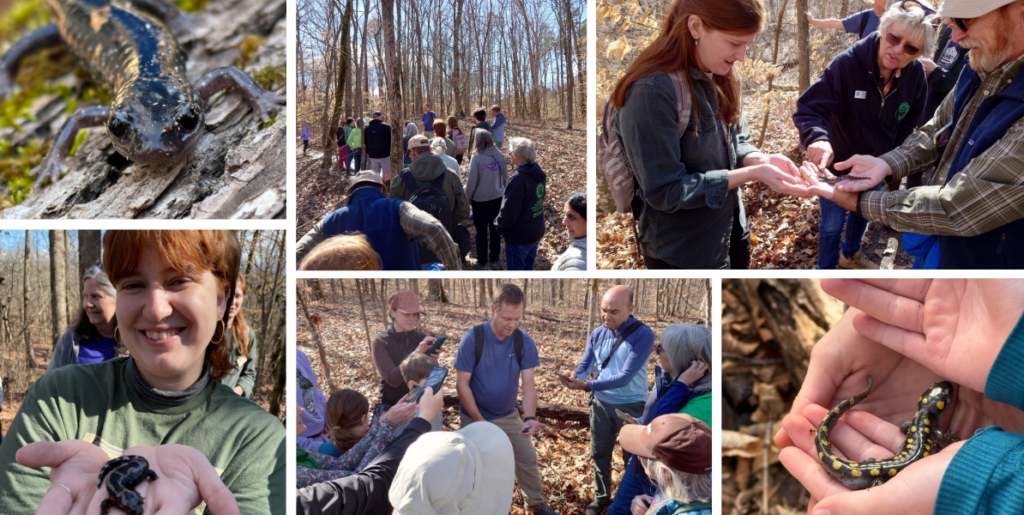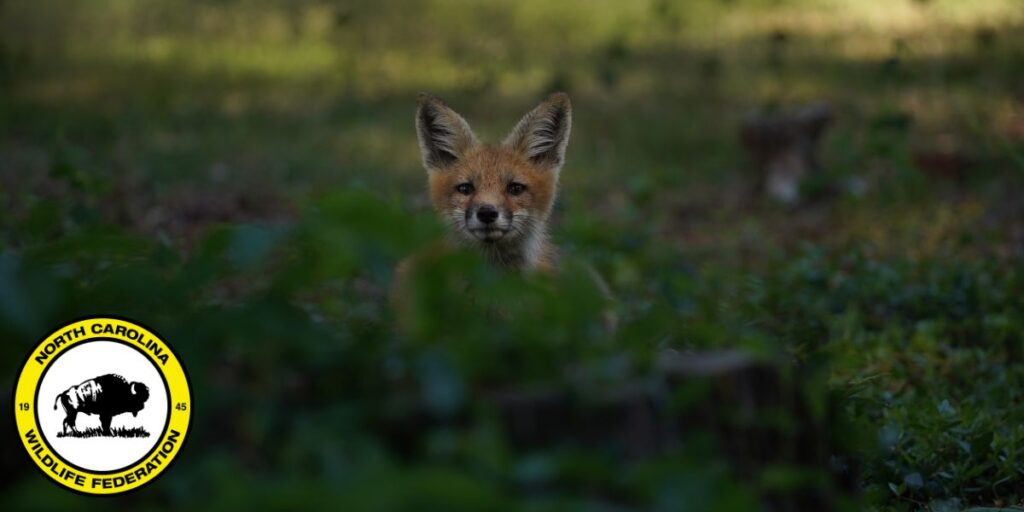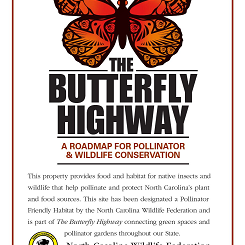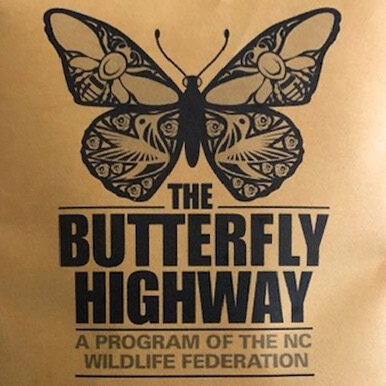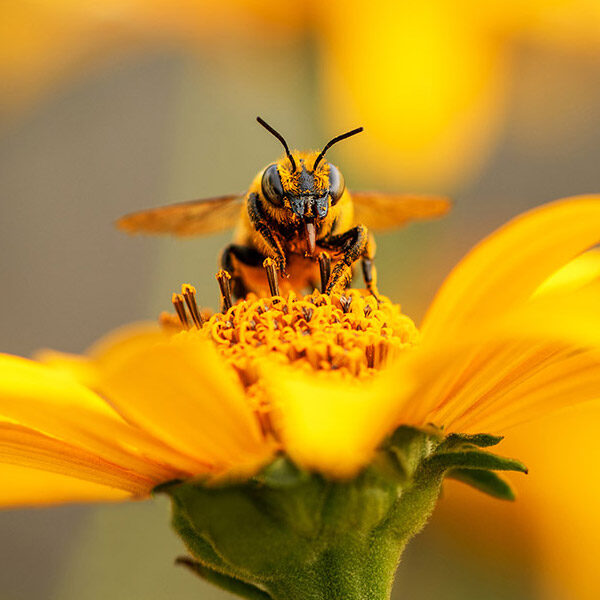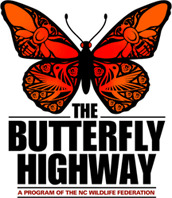Pollinators
The Problem
Pollinator Habitat Destruction
Pollinators continue to make global headlines native bumble bees, migrating monarch butterflies and other insect pollinators decline. Habitat loss from development, urbanization, intensive agriculture, invasive species, and other manmade threats like climate change.
The Solution
Restore Pollinator Habitat on Private Lands
The Butterfly Highway is a statewide conservation restoration initiative that aims to restore native pollinator habitats to areas impacted by urbanization, land use change and agriculture across North Carolina. From backyard Pollinator Pitstops to large-scale roadside habitat restoration, the project is creating a network of native flowering plants to support butterflies, bees, birds and other pollen and nectar dependent wildlife.
Convert your yard or container garden into a Pollinator Pitstop along the Butterfly Highway by registering and joining the Butterfly Highway network today.
Below are some tips for a successful pollinator pitstop. You can also reference the Butterfly Highway Garden Toolkit.
- Research local nurseries for great native plant selection. See our recommended list of native plant options.
- Diversify nectar sources and larvae food sources by incorporating a variety of plants of varying heights and colors.
- Plant in appropriate seasons and know when to expect plants to bloom. Select multiple plants with bloom times throughout the growing season (March-November).
- Study the sunlight in your yard across the seasons. Create a basic map of your yard including structures if that is helpful.
- Select the right plant for the right place. Choose plants that are suited to your area (e.g., soil, climate, sun exposure)
- Take small steps: Eliminating all turf grass at once would be a major undertaking. Instead, replace invasive or non-native plants over time with native plants as they die off. Section off a part of your lawn that you will turn to a flower bed this year or don’t mulch a section of your garden so ground bees can burrow.
- Involve neighbors and friends in your efforts through signage.
- Supplement native plants with bird and bat houses, bird baths, butterfly puddlers and more.
Learn more about North Carolina pollinators through the NCWF Pollinator Guide, the NCSU Bee Guide, NC Pollinator Toolkit, and the NC Parks Butterfly Guide. You can also find out which pollinator plants bloom when in North Carolina with the NCWF Bloom Calendar so you can help feed pollinators, birds, and other wildlife all year long.
What We're Doing
Support Our Efforts - How You Can Help
- Stay Informed — Sign up to receive the Butterfly Highway email newsletter
- Plant NC native pollinator seeds — Expand your current pollinator garden or start a new garden bed by including NCWF’s native pollinator seed mix. Seeds will arrive in a packet that includes a mix of at least 7 different species of native pollinator plants that support both larval and adult stages of local pollinators. Seed packets cost $10 each and cover about 25 square feet.
- Show off your butterfly love — Purchase a Butterfly Highway sign to show your commitment to protecting pollinators and providing a safe haven for important species, including butterflies, bees, flies and more. Proudly show off the impact you’re making and bring your neighbors and friends into the pollinator pitstop network. The sign is available as a yard sign for $35 (pictured below) which can be screwed onto a post in your garden, or as a large 3 foot sign (by special request) for $60.
- Join/Register your garden – Registering your yard as a Pollinator Pitstop, you are committing to providing a safe place for pollinators to thrive in both adult and young stages. Your Pollinator Pitstop can be any size and there is no charge to join.
- Support the Butterfly Highway – Your investment helps expand pollinator habitat throughout North Carolina through on-the-ground restoration projects, supporting policy that benefits pollinators, and so much more.
Recent News
Upcoming Events
Order Your Butterfly Highway Sign
Put up a Butterfly Highway sign to show off your amazing pollinator pitstop and start the conversation in your community about helping pollinators and conserving wildlife habitat.
Get Your Native Seed Packets
One packet of native seeds provides as many as 7 different kinds of native flowering plants for monarchs and other pollinators, creating up to 25 square feet of habitat. The seed variety includes purple coneflowers, milkweed, black-eyed Susans, and more!
How You Can Help
Join the Cause and Make an Impact
Help NCWF preserve wildlife and habitat for our children and future generations. Learn More.


